There’s no such thing as too much education—and that’s especially true in the realm of multifamily property management. Keeping one’s skills sharp and knowledge base both broad and current is a must for all management professionals, regardless of how long they’ve been in the industry, or how many communities are in their portfolio. Continuing education (CE) is a vital part of staying on top of the game and providing the best service to client communities. It should also be a top consideration for boards in their relationship with their manager or management company, whether the relationship goes back decades, or is brand-new.
It’s About Service
Multifamily management is a complex, ever-changing business; anyone looking to make a profession of it must by necessity adapt and evolve along with the industry, or find themselves left behind. By staying abreast of advances in technology, changes to laws and regulations, and best practices within the field, management pros can deliver the level of service that boards and residents expect—and pay for. Certifications, advanced designations, and professional affiliations also let boards know in a concrete, measurable way that the manager they’re working with is committed to keeping their skills current.
“Enhanced training directly translates to better service,” says Bruno Bartoli, senior director of management services with Evergreen Management in Bedford, New Hampshire. “A manager who holds advanced designations such as Association Management Specialist (AMS) or Professional Community Association Manager (PCAM) brings a higher level of knowledge, professionalism, and problem-solving capability. For management firms, having credentialed staff elevates the firm’s reputation and provides boards with confidence in their ability to handle complex operational, financial, and governance matters. It also signals a culture of excellence, which is a competitive differentiator in today’s market.”
“I am a firm believer that a manager should always be continuing to learn something new and to update their skill sets,” says Sean Jordan, director of property management for FirstService Residential in Canton, Massachusetts. “Our industry changes pretty rapidly at times based upon not only trends, but also outside influences such as government mandates or lending requirements.”
Where to Turn & What to Learn
How do managers find and take advantage of educational opportunities? Professional organizations at the state and national levels often require members to earn a certain number of CE credits to maintain their membership, and may even offer courses that satisfy that requirement, both in-person and online. Some management firms also offer courses and workshops in-house, or sponsor their staff members to take courses outside the company. Trade events—including The Cooperator Expos, which are hosted by the parent company of this publication—frequently feature seminars that count toward CE credit requirements.
CE options vary from region to region, and often depend on whether a community manager is also a broker and/or is required by their state to hold a license. Engaging in real estate activities without the proper license can have serious consequences, including fines, civil penalties, restrictions on future licensing eligibility, even jail time. It’s therefore crucial to understand the scope of property management activities you or your hired professionals are involved in, and ensure they hold the required licensing to operate legally. With that in mind, here’s a sample of the general parameters, and some of the more recognized, well-established offerings across the country:
Nationally, the main organization providing continuing education for shared community managers is the Community Associations Institute (CAI).
CAI offers a variety of educational programs, including courses, webinars, and conferences covering topics like finance, insurance, leadership, governance, and communication. They also offer professional credentials like the Certified Manager of Community Associations (CMCA), Association Management Specialist (AMS), and Professional Community Association Manager (PCAM), which have continuing education requirements for renewal.
The Community Association Managers International Certification Board (CAMICB) administers the CMCA credential and requires CMCA-certified managers to complete 16 hours of continuing education every two years. They approve various educational opportunities, including those offered by CAI, state regulatory agencies (for states with manager licensing requirements like Florida, Nevada, Virginia, and Illinois), and other relevant professional development programs.
New York
Doug Weinstein, senior vice president for AKAM Management with offices in New York and Florida notes that licensing requirements in New York are different from those in other parts of the country. “There have been attempts to mandate licensing in New York specifically for managers, but those attempts have never been successful,” he says. In lieu of that, “There are professional organizations that offer many different certifications for property managers.”
To engage in certain aspects of residential property management in New York State, you must hold a real estate broker’s license. This license is essential for property managers who handle tasks such as:
Renting, listing, and negotiating the rental of property, including advertising vacancies, interviewing prospective tenants, and drafting lease agreements.
Collecting rent, or placing tenants on behalf of a landlord client. Property managers performing these functions require a broker’s license, according to New York’s real estate licensing laws.
However, some property management tasks in New York do not require a real estate broker’s license, including:
• Performing strictly maintenance-related duties. If your responsibilities are limited to upkeep and repairs, a broker’s license isn’t necessary.
• Managing a community association (like an HOA): Community association managers in New York are exempt from the broker licensing requirement.
• Working as a salesperson or secretary under a licensed property manager. In this case, you can perform administrative tasks and assist with certain activities under the supervision of a licensed broker.
• Being an on-site resident manager who lives in the building they manage. These individuals typically don’t need a separate license for their on-site duties.
Massachusetts
“In Massachusetts there is no requirement that you be certified to conduct property management,” says Jordan, “But as an industry, we do have a couple of organizations that we utilize as the standard, such as the Community Associations Institute (CAI) and the Institute of Real Estate Management (IREM).”
“CAI National and CAI NE both offer certifications and continuing education,” adds Scott Wolf, CEO of Brigs, a management firm based in Boston, “but it is not required, and many companies do not participate due to the cost. However, others like my firm require managers to take classes, and encourage them to get certifications.”
Massachusetts does require the following:
• Professional Certifications: The CAI and Community Association Managers International Certification Board (CAMICB) advocate for and offer industry-recognized certifications like the Certified Manager of Community Associations (CMCA), Association Management Specialist (AMS), and Professional Community Association Manager (PCAM).
• CMCA Recertification: If you hold the CMCA designation, you must recertify every two years.
• Continuing Education for CMCA: Recertification requires either 16 hours of continuing education every two years or holding an active AMS or PCAM designation for at least one year.
• Continuing Education Sources: Approved continuing education can include courses related to community association management, and managers can also earn credit for teaching such courses.
• Annual Service Fee: Managers with CMCA certification must pay an annual service fee to CAMICB.
Illinois
• Illinois requires both licensing and continuing education for CAMs. Requirements include:
• Licensing: Individuals seeking to become CAMs in Illinois must complete 20 hours of approved prelicensure courses and pass a licensing examination, such as the CMCA exam.
• Continuing Education: As of 2025, licensed CAMs are required to complete 12 hours of continuing education during each two-year license renewal period. These CE credits must be obtained from approved providers, such as the CAI or the CAMICB. Holding a professional designation like CMCA, AMS, or PCAM also fulfills the CE requirements.
In addition, as of June 2, 2023, community association management firms in Illinois are also required to be licensed. Each licensed firm must in turn be managed by a licensed CAM.
New Jersey
New Jersey has licensing requirements and mandatory continuing education for community association managers. Here’s a summary:
• Licensing: Individuals must be licensed to provide or hold themselves out as providing management services to community associations.
• Continuing Education: As a condition for biennial license renewal, licensed common interest community managers are required to complete continuing education requirements as determined by the Common Interest Community Manager Board (CICMB).
• Education Standards: The CICMB is tasked with establishing standards for continuing education, including the number of credits (not exceeding 18 hours biennially, with at least three in professional ethics), and approving educational programs that offer credit towards these requirements.
• Examination: To be eligible for licensure, applicants must demonstrate successful completion of a training program and pass an exam approved or developed by the board, or an exam accredited by the National Commission for Certifying Agencies (NCCA).
• Experience: For a limited period after the licensing procedures are established, individuals with at least 12 months of experience in providing management services and who demonstrate completion of a similar training program and exam can be licensed.
In addition to these organizations, some states, like Florida, Nevada, and Illinois have regulatory agencies that approve continuing education coursework for community association managers as part of their licensing requirements. These regulatory agencies work in tandem with CAI to provide continuing education opportunities.
What’s Hot
The most in-demand CE courses often reflect current issues in the market and the shared community industry. According to Bartoli, “Courses focused on conflict resolution, legislative compliance, and sustainability practices are particularly relevant right now. As communities grapple with rising costs, infrastructure concerns, and shifting resident expectations, managers must be well-versed in both technical and interpersonal dynamics. There’s also growing interest in cybersecurity, insurance trends, and technology platforms used in association management — all of which are becoming core areas of continuing education.”
According to Weinstein, “Our industry continues to be increasingly technologically driven; we’re utilizing different types of building systems that were unheard of just a few years ago, and managers must keep up with the times. Continuing education provides the framework to do just that.”
“Another important consideration is giving continuing education to the boards,” he continues. “It’s a two prong approach. An educated board is a better client—so we do webinars for board members too.”
“Understanding lending requirements for homeownership is another area where managers should have up-to-date knowledge,” adds Jordan. “It helps management and the board stay on top of items that may affect someone’s ability to purchase in their community, as well as for current homeowners to refinance their home. Management should keep reserve studies in place and updated accordingly.”
“In our industry,” Jordan continues, “we deal with people’s homes—it’s their most important asset, so there’s a huge trust factor involved. Knowing that the person or firm managing your community is qualified and encourages training and certification speaks volumes about the people you’re working with. Investing in knowledge and practices, which we then apply to our clients and their homes, can help us give the best advice possible to our boards and residents.”
A J Sidransky is a staff writer/reporter for CooperatorNews, and a published novelist. He may be reached at alan@yrinc.com




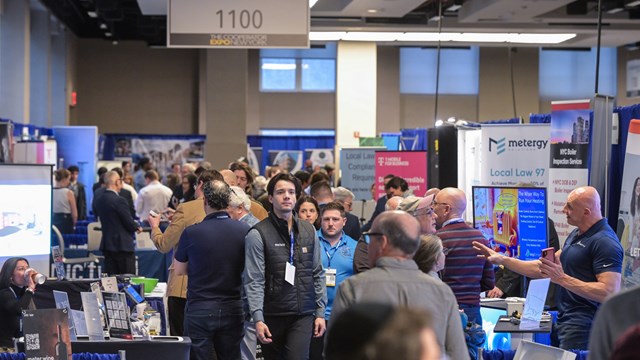
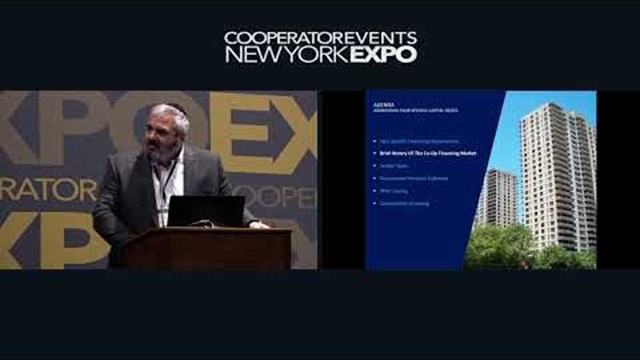
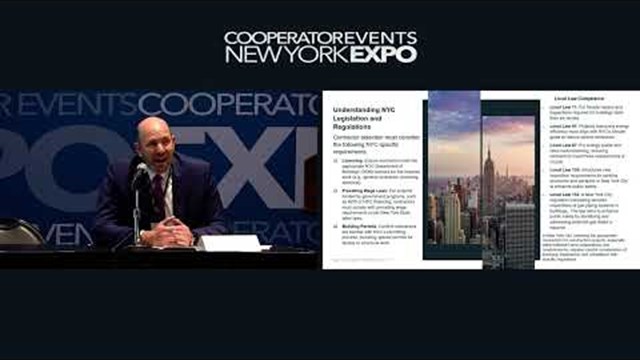
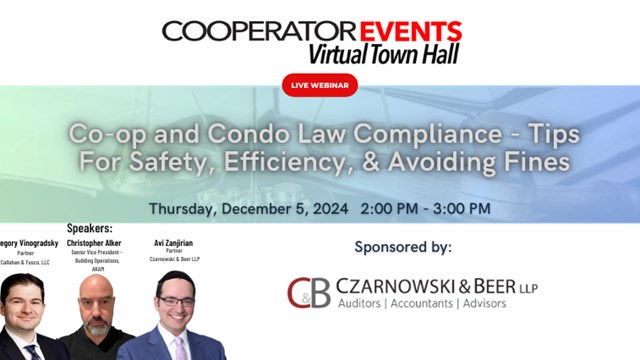
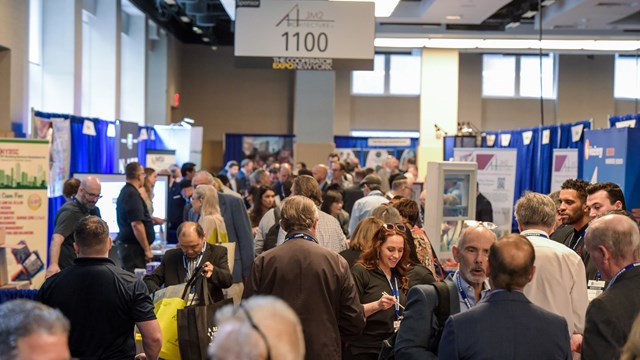
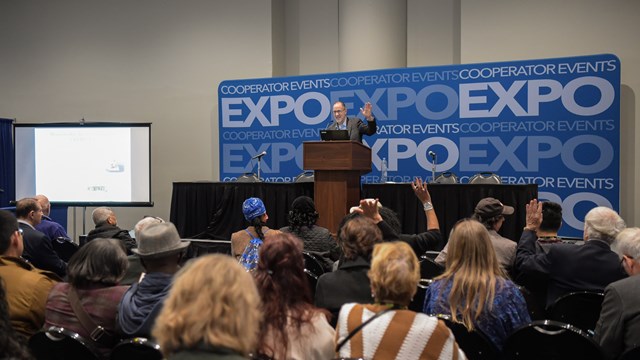
Leave a Comment